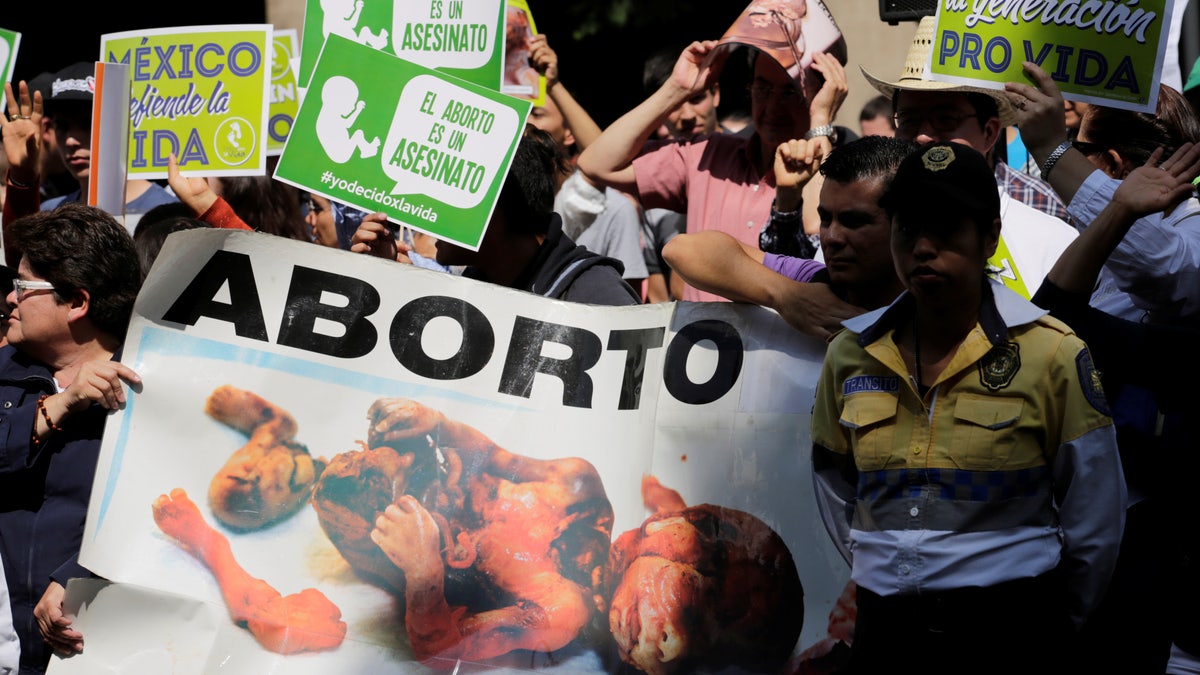
People and pro-life activists hold a banner with an image of a fetus which reads "Abortion." (Reuters)
Chile, one of only six countries that still refuse abortions under any circumstances, is one step closer to allowing them.
A law introduced two years ago by President Michelle Bachelet herself is ready for a full-Senate vote after a constitutional commission narrowly agreed to advance it.
The Senate panel passed the measure Monday with a 3-2 vote.
The new law would decriminalize abortion until up to 12 weeks if the mother's health is at risk, if the fetus would not survive the pregnancy and if the pregnancy is the result of a rape.
Also, the 12-week limit would extend to 18 weeks in cases when the mother is 14 or younger.
Although Chile’s 1931 health code legalized abortion in limited circumstances, a law passed in 1989 banned it under all circumstances. In addition to Chile, the procedure continues to be fully banned in El Salvador, Malta, the Vatican, the Dominican Republic and Nicaragua.
Pro-choice advocates point out that nearly 200,000 unsafe abortions occur each year in Chile. In 2008, according to the Chilean Ministry of Health, more than 33,000 women were hospitalized due to abortion complications.
However, many right-leaning politicians and interest groups in Chile continue to oppose a change in the legislation and last year Chile's Catholic Church released an 18-page statement against decriminalized abortion. It warned that by approving the bill the country would be fostering a "culture of death."
The controversial bill was approved by the lower chamber in March 2016 and again in September 2016 by the Senate Health Commission.
Since 1990, 15 abortion-related bills have been submitted by legislators to Congress.




















